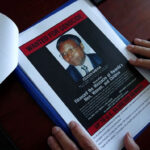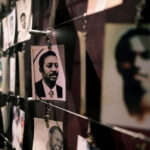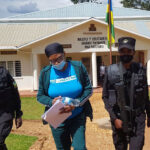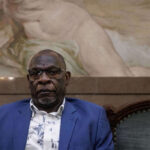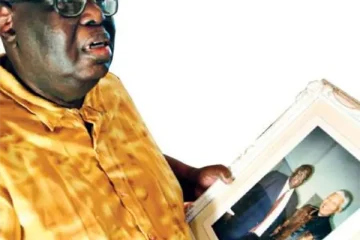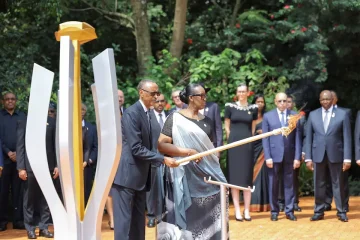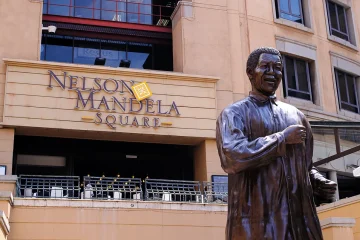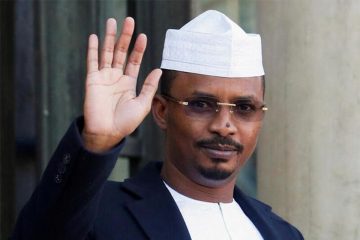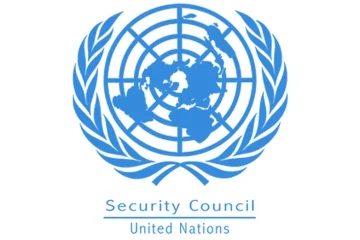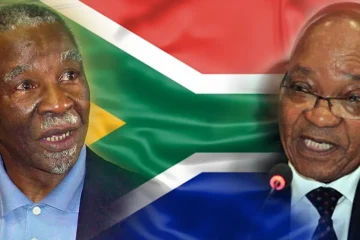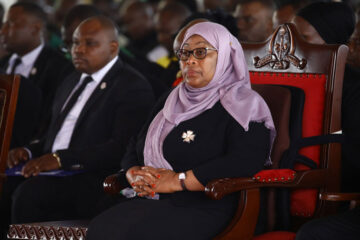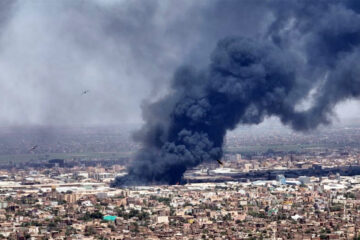THE International Residual Mechanism for Criminal Tribunals recently concluded a two-year court hearing on Félicien Kabuga. Kabuga is accused of crimes against humanity during the Genocide against the Tutsi in Rwanda in 1994. The court ruled that he was not mentally fit for trial.

The court proposed that the tribunal judges find an “alternative procedure that resembles a trial as closely as possible but without the possibility of a conviction”. What this “alternative procedure” will look like is still not fully known. Rwanda’s ambassador to the Netherlands, Olivier Nduhungirehe, has suggested a court case would still occur, but without Kabuga. Questions will be raised about how this falls within international legal procedures. Jonathan Beloff, who has researched post-genocide Rwanda, explores the implications of the tribunal’s decision for genocide victims.
Who is Félicien Kabuga?
Kabuga, who claims to be 90, was a successful businessman before and during the 1994 Genocide against the Tutsi.
He gained considerable wealth from tea production during the presidency of Juvénal Habyarimana between 1973 and 1994.
In 1997, Kabuga was accused by the International Criminal Tribunal for Rwanda of seven criminal charges. These included providing funds to import weapons used to kill an estimated 800,000 Tutsis and moderate Hutus over 100 days in 1994.
He was also accused of funding a radio station that broadcasted anti-Tutsi messages.
Kabuga fled Rwanda during the Rwandan Patriotic Front’s operation to end the genocide.
He was named among 93 suspected leaders of the genocide by the International Criminal Tribunal for Rwanda. However, he remained in hiding in Kenya, Switzerland and later France.
In May 2020, French authorities arrested him at his Paris home. Kabuga has, however, denied the charges against him.
What happened after his arrest in France?
The International Residual Mechanism for Criminal Tribunals at The Hague gained custody of Kabuga shortly after his arrest. His alleged crimes fell under its jurisdiction. The Hague-based court took over from the International Criminal Tribunal for Rwanda, whose mandate ended in 2012.
Prosecution in Rwanda was never a realistic option – Kabuga was wanted by an international court, which holds legal precedence over Rwanda’s judicial demands.
Additionally, international human rights groups, such as Human Rights Watch and Amnesty International, have questioned the credibility of Rwanda’s judicial system, often claiming unfair practices and political interference. This has affected the Rwandan government in extradition applications for other genocide perpetrators. Nevertheless, Rwanda’s National Public Prosecution Authority committed to assisting the international tribunal in Kabuga’s prosecution.
The central focus of Kabuga’s case at the tribunal was his ability to participate in the hearings meaningfully. By the time of his arrest, he had suffered physical deterioration from old age and dementia. Dementia covers a range of conditions that include a loss of memory, problem-solving and language skills.
Kabuga’s lawyers argued that he was unfit for trial because of these medical conditions. Since his arrest, he has been held by The Hague-based court.
Rwandan genocide survivor organisations, such as Ibuka, have previously protested against any hindrance to what they perceive as necessary justice. But Kabuga’s lawyers’ arguments on their client’s mental well-being convinced the judges.
What are the implications of this judgement for Rwandans?
The recent court decision on Kabuga’s inability to fruitfully participate in any trial reinforces what some Rwandans expected as a failure of the international system and justice.
Shortly after his arrest, some Rwandans expressed scepticism about Kabuga’s trial which would be in Europe rather than Kigali. They say those suspected of participating in Rwanda’s genocide must be prosecuted in the country where the crime occurred. As the Ibuka executive secretary once put it:
Rwanda has all it requires to deliver standard justice.
Some Rwandans have also questioned the effectiveness of the International Criminal Tribunal for Rwanda, claiming it sought to make up for the international community’s inaction during the genocide rather than provide justice for the victims.
This tribunal cost nearly US$1 billion and convicted 61 out of 93 Rwandan perpetrators from 1995 to 2012. In contrast, Rwanda’s domestic judicial and reconciliation system, gacaca, prosecuted an estimated one million people for various crimes and offences during the genocide at a much lower cost between 2002 and 2012. Gacaca courts were presided over by local leaders. They gave the accused opportunities to admit guilt and reconcile with victims.
This latest international court ruling on Kabuga will reinforce the belief that the international community has abandoned Rwandans who seek meaningful justice. The decision, particularly in light of the fact that genocide suspects are still at large in other countries, is likely to erode Rwandan trust in international courts’ capabilities to properly prosecute suspects and deliver justice.


